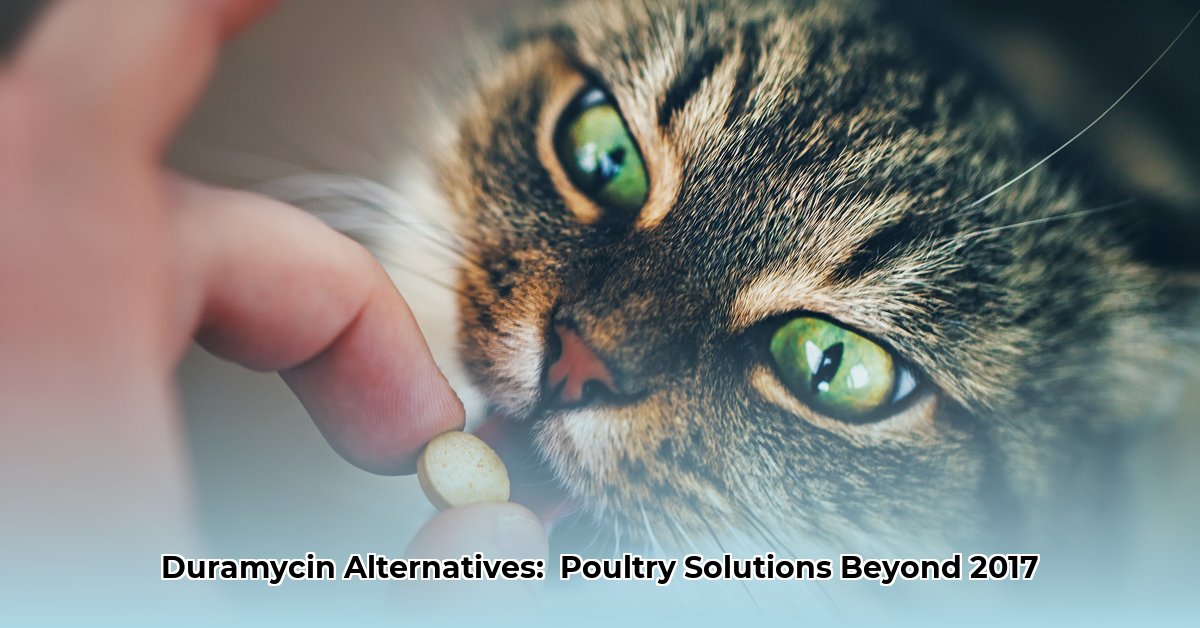
Duramycin Tractor Supply: What to Do Now?
The 2017 changes to over-the-counter antibiotic sales have significantly impacted small-scale poultry farmers. The readily available Duramycin at Tractor Supply is no longer an option, leaving many searching for effective and affordable alternatives to maintain flock health. This shift, while intended to combat antibiotic resistance, presents unique challenges for those raising chickens on a smaller scale. This article provides guidance on navigating this new landscape and developing a sustainable approach to poultry care. For more information on Tractor Supply's practices, see Tractor Supply chicks.
Understanding the Changes and Finding Alternatives
The removal of Duramycin from over-the-counter sale aims to curb antibiotic resistance, a crucial public health concern. This decision, while beneficial in the long term, has created immediate difficulties for small poultry farmers. Veterinary visits, often necessary for antibiotic prescriptions such as injectable oxytetracycline or oral doxycycline, can be costly and logistically challenging, particularly for those in rural areas. This necessitates a shift toward proactive disease prevention and exploration of alternative treatment options.
Exploring Affordable Alternatives
While over-the-counter antibiotics are no longer readily accessible, several affordable alternatives can support poultry health. However, remember that these alternatives should supplement, not replace, proper veterinary care when necessary.
- Essential Oils: Certain essential oils, such as oregano, thyme, and tea tree oil, possess antimicrobial properties. Always consult a veterinarian for appropriate dosages and application methods. Research on their efficacy in poultry is ongoing, and results may vary depending on the specific oil, dosage, and the condition being treated.
- Phytochemicals: Plant-derived compounds found in herbs and spices show promise in supporting poultry immune systems. Professional guidance is critical for safe and effective use.
- Probiotics and Prebiotics: These beneficial bacteria and their substrates support gut health, a cornerstone of a strong immune system in poultry.
- Improved Nutrition: Providing a well-balanced and nutritious diet strengthens the birds' natural resistance to disease.
Prevention: Your Best Line of Defense
Proactive disease prevention is fundamentally more effective and cost-efficient than treatment. Robust biosecurity measures are essential:
- Hygiene: Regular and thorough cleaning and disinfection of coops, equipment, and surrounding areas.
- Quarantine: Isolate new birds for at least two weeks to prevent disease introduction.
- Pest Control: Regularly monitor and eliminate rodents and insects that may carry diseases.
- Visitor Management: Limit farm access and require appropriate protective gear from visitors.
Implementing these strategies reduces reliance on antibiotics and promotes overall flock health. A focus on preventing disease is cheaper and more humane than reactive treatment.
The Role of Your Veterinarian and Long-Term Strategies
Veterinary care plays a crucial role in maintaining flock health in this new environment. Finding an avian veterinarian experienced in sustainable poultry farming is vital. They can:
- Provide accurate diagnoses and recommend appropriate treatments.
- Guide you in using alternative therapies safely and effectively.
- Offer advice on biosecurity measures specific to your farm.
A long-term strategy necessitates:
- Continuing Education: Attend workshops, read relevant literature, and engage with online communities (such as the Backyard Chickens forum) for updated information.
- Networking: Connect with other small-scale poultry farmers to share experiences and lessons learned.
- Advocacy: Support initiatives that promote sustainable poultry farming and accessible resources.
This transition requires a holistic approach combining preventative measures, alternative therapies, and collaboration with veterinarians. Remember: The health of your flock depends on a proactive and informed approach to poultry management. Always consult your veterinarian before implementing any treatment plan.